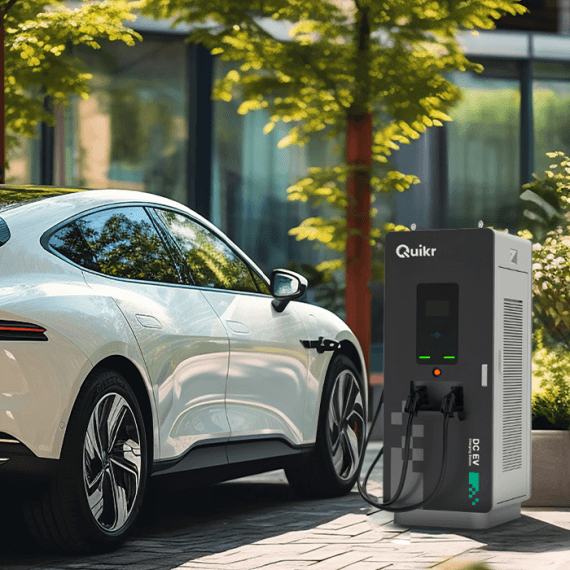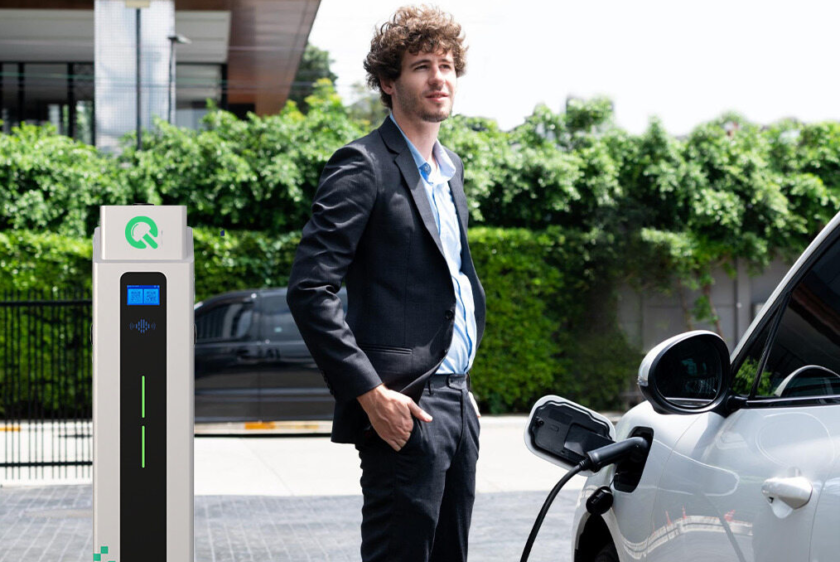The electric vehicle (EV) revolution is transforming the UAE, with Dubai leading the charge toward a sustainable future. As more businesses and consumers adopt EVs, the demand for EV charging solutions for your business is skyrocketing.
Whether you’re a property developer, a retail business, or an entrepreneur looking for a lucrative opportunity, setting up an EV charging station business model can be highly profitable.
This guide explores the best EV charging business models, costs, and strategies to help you capitalize on this booming market.
Why Invest in EV Charging Solutions in the UAE?
The UAE government is aggressively promoting EV adoption through incentives like:
- Dubai’s Green Charger Initiative (aiming for 1,000+ charging stations)
- Abu Dhabi’s EV incentives (free parking, toll exemptions)
- Federal tax exemptions on EV imports
With EV sales surging, businesses that offer EV charging solutions for your business can:
✔ Attract eco-conscious customers
✔ Generate new revenue streams
✔ Enhance corporate sustainability goals
✔ Benefit from government incentives
What Business/Monetization Models Are Available for Commercial EV Charging?
Choosing the right EV charging business model is crucial for profitability. Here are the top models:
1. Loss Leader Model
- How it works: Offer free or subsidized charging to attract customers (e.g., malls, hotels).
- Best for: Businesses that want to increase foot traffic.
- Revenue source: Indirect (increased sales at your main business).
2. Operational Cost or Total Cost Recovery
- How it works: Charge users just enough to cover electricity and maintenance.
- Best for: Workplaces, apartments, and public charging spots.
- Revenue source: Break-even model with minimal profit.
3. Profit-Making Model
- How it works: Set competitive pricing per kWh or per hour.
- Best for: Standalone charging stations, fuel stations, and retail hubs.
- Revenue source: Direct income from charging fees.
4. Fully Funded Model
- How it works: Partner with Charge Point Operators (CPOs) who install and manage chargers for a share of revenue.
- Best for: Businesses that want zero upfront investment.
- Revenue source: Revenue-sharing with the CPO.
What Are the Costs Associated with Commercial EV Charging?

Understanding the costs of EV charging stations business model is essential for financial planning.
1. Chargepoint Hardware Costs
- Level 2 Chargers (AC): AED 5,000 – AED 15,000 per unit
- DC Fast Chargers: AED 50,000 – AED 200,000 per unit
2. Chargepoint Installation Costs
- Basic installation: AED 2,000 – AED 10,000
- Complex setups (underground cabling, etc.): AED 15,000+
3. Grid Reinforcement Costs
- Electrical upgrades may be needed if existing infrastructure is insufficient.
- Cost: AED 20,000 – AED 100,000+
4. Ongoing Electrical Costs
- Depends on usage: ~AED 0.30 – AED 0.50 per kWh in the UAE.
5. Ongoing Maintenance Costs
- Software subscriptions: AED 500 – AED 2,000/month
- Hardware maintenance: AED 1,000 – AED 5,000/year
How to Choose the Right EV Charging Business Model?
| Factor | Loss Leader | Cost Recovery | Profit-Making | Fully Funded |
|---|---|---|---|---|
| Upfront Investment | Low-Medium | Medium | High | None |
| Revenue Potential | Indirect | Break-even | High | Medium |
| Best For | Retail, Hotels | Workplaces | Fuel Stations | All Businesses |
How to Start an EV Charging Business in Dubai & UAE?
- Market Research – Identify high-demand locations (malls, offices, highways).
- Choose a Business Model – Select from EV charger business models that fit your goals.
- Select Hardware & Software – Partner with reliable providers like QuikRev.
- Get Approvals – DEWA, ADDC, and local municipalities may require permits.
- Install & Launch – Deploy chargers and start monetizing.
Can I Invest in EV Charging Stations?
Yes! Investing in EV charging stations is a profitable opportunity in the UAE, thanks to:
✔ Government incentives (subsidies, tax benefits)
✔ Rising EV adoption (Dubai aims for 42,000 EVs by 2030)
✔ Multiple revenue models (pay-per-use, subscriptions, advertising)
How to Invest?
- Set up your own charging stations (requires upfront investment).
- Partner with Charge Point Operators (CPOs) (revenue-sharing model).
- Franchise with established brands (lower risk).
🚀 Ready to start? Get a free consultation from QuikRev!
Who Is the Biggest Manufacturer of EV Charging Stations?
The global EV charging station market is dominated by:
| Company | Key Products | Market Presence |
|---|---|---|
| Tesla | Superchargers, Destination Chargers | Worldwide |
| ChargePoint | AC & DC fast chargers | Global leader |
| ABB | Terra AC & DC chargers | UAE, Europe, US |
| Siemens | VersiCharge, Sicharge | Middle East, Europe |
| Schneider Electric | EVlink chargers | UAE, Global |
In the UAE, local suppliers and installers like QuikRev provide customized EV charging solutions for your business with competitive pricing and support.
What Is the Concept of an EV Charging Station?
An EV charging station supplies electricity to recharge electric vehicles. The key components include:
Types of EV Chargers
- Level 1 (Slow Charging) – 3-5 kW (home use, 8-12 hours for full charge).
- Level 2 (Fast Charging) – 7-22 kW (commercial use, 3-6 hours for full charge).
- DC Fast Charging (Ultra-Fast) – 50-350 kW (highways, 20-40 mins for 80% charge).
How It Works
- User plugs in their EV.
- Authentication (via RFID, app, or credit card).
- Charging begins (billed per kWh or time-based).
- Payment processed (automatically after charging).
⚡ Need a station installed? Contact QuikRev today!
What Is the Battery Swapping Station Business Model?
Battery swapping is an alternative to traditional EV charging, where depleted batteries are replaced with fully charged ones in minutes.
How It Works
- EV driver enters a swapping station.
- Automated system removes the empty battery.
- Fully charged battery is installed.
- Payment is processed (subscription or per-swap fee).
Pros & Cons
| Advantages | Challenges |
|---|---|
| ⚡ 5-minute swap (vs. 30+ min charging) | 🏭 High upfront infrastructure cost |
| 🔋 No battery degradation for users | 🚗 Limited to compatible EV models |
| 🔄 Better for fleet operators | 🔌 Requires standardized batteries |
Is It Viable in the UAE?
- Yes, for fleets (taxis, delivery vans).
- Limited for private cars (due to varying battery designs).
🔋 Interested in battery swapping solutions? Call QuikRev
Why Partner with QuikRev for Your EV Charging Business?
At QuikRev, we provide end-to-end EV charging solutions for your business, including:
✅ Custom business plans for EV charging stations
✅ Smart charging software & management
✅ Hardware procurement & installation
✅ Ongoing maintenance & support
Get Started Today!
📞 Call Us: +971 4 279 7997
📧 Contact Us: quikrev.com
Final Thoughts
The EV charging station business model is a lucrative opportunity in the UAE, with strong government support and growing demand.
Whether you opt for a profit-making model or a fully funded partnership, now is the perfect time to invest in EV charging solutions for your business.
Ready to power the future? Contact QuikRev today for a tailored solution! 🚗⚡





